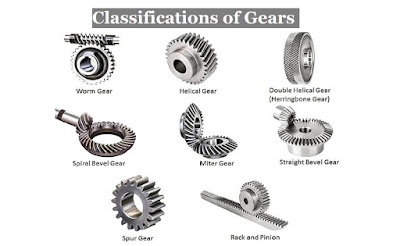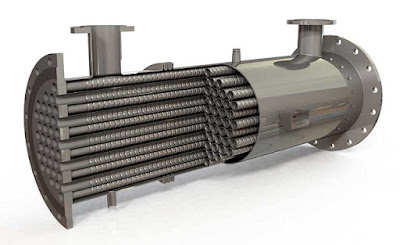Technically,
mechanical engineering is the application of the principles and problem-solving
techniques of engineering from design to manufacturing to the marketplace for
any object. Mechanical engineers analyze their work using the principles of
motion, energy, and force — ensuring that designs function safely, efficiently,
and reliably, all at a competitive cost.
Mechanical
engineers make a difference. That’s because mechanical engineering careers
center on creating technologies to meet human needs. Virtually every product or
service in modern life has probably been touched in some way by a mechanical
engineer to help humankind.
This
includes solving today’s problems and creating future solutions in health care,
energy, transportation, world hunger, space exploration, climate change, and
more.
Being
ingrained in many challenges and innovations across many fields means a
mechanical engineering education is versatile. To meet this broad demand,
mechanical engineers may design a component, a machine, a system, or a
process. This ranges from the macro to
the micro, from the largest systems like cars and satellites to the smallest
components like sensors and switches. Anything that needs to be manufactured —
indeed, anything with moving parts — needs the expertise of a mechanical
engineer.
What do
mechanical engineers do?
Mechanical
engineering combines creativity, knowledge and analytical tools to complete the
difficult task of shaping an idea into reality.
This
transformation happens at the personal scale, affecting human lives on a level
we can reach out and touch like robotic prostheses. It happens on the local
scale, affecting people in community-level spaces, like with agile
interconnected microgrids. And it happens on bigger scales, like with advanced
power systems, through engineering that operates nationwide or across the
globe.
Mechanical
engineers have an enormous range of opportunity and their education mirrors
this breadth of subjects. Students concentrate on one area while strengthening
analytical and problem-solving skills applicable to any engineering situation.
Disciplines
within mechanical engineering include, but are not limited to:
- Acoustics
- Aerospace
- Automation
- Automotive
- Autonomous
Systems
- Biotechnology
- Composites
- Computer
Aided Design (CAD)
- Control
Systems
- Cyber
security
|
- Design
- Energy
- Ergonomics
- Human
health
- Manufacturing
and additive manufacturing
- Mechanics
- Nanotechnology
- Production
planning
- Robotics
- Structural
analysis
|
Technology
itself has also shaped how mechanical engineers work and the suite of tools has
grown quite powerful in recent decades. Computer-aided engineering (CAE) is an
umbrella term that covers everything from typical CAD techniques to
computer-aided manufacturing to computer-aided engineering, involving finite
element analysis (FEA) and computational fluid dynamics (CFD). These tools and
others have further broadened the horizons of mechanical engineering.
What careers
are there in mechanical engineering?
Society
depends on mechanical engineering. The need for this expertise is great in so
many fields, and as such, there is no real limit for the freshly minted
mechanical engineer. Jobs are always in demand, particularly in the automotive,
aerospace, electronics, biotechnology, and energy industries.
Here
are a handful of mechanical engineering fields.
In
statics, research focuses on how forces are transmitted to and throughout a
structure. Once a system is in motion, mechanical engineers look at dynamics,
or what velocities, accelerations and resulting forces come into play.
Kinematics then examines how a mechanism behaves as it moves through its range
of motion.
Materials
science delves into determining the best materials for different applications.
A part of that is materials strength — testing support loads, stiffness,
brittleness and other properties — which is essential for many construction,
automobile, and medical materials.
How
energy gets converted into useful power is the heart of thermodynamics, as well
as determining what energy is lost in the process. One specific kind of energy,
heat transfer, is crucial in many applications and requires gathering and
analysing temperature data and distributions.
Fluid
mechanics, which also has a variety of applications, looks at many properties
including pressure drops from fluid flow and aerodynamic drag forces.
Manufacturing
is an important step in mechanical engineering. Within the field, researchers
investigate the best processes to make manufacturing more efficient. Laboratory
methods focus on improving how to measure both thermal and mechanical engineering
products and processes. Likewise, machine design develops equipment-scale
processes while electrical engineering focuses on circuitry. All this equipment
produces vibrations, another field of mechanical engineering, in which
researchers study how to predict and control vibrations.
Engineering
economics makes mechanical designs relevant and usable in the real world by
estimating manufacturing and life cycle costs of materials, designs, and other
engineered products.
What skills do
mechanical engineers need?
The
essence of engineering is problem solving. With this at its core, mechanical
engineering also requires applied creativity — a hands on understanding of the
work involved — along with strong interpersonal skills like networking,
leadership, and conflict management. Creating a product is only part of the
equation; knowing how to work with people, ideas, data, and economics fully
makes a mechanical engineer.
What tasks do
mechanical engineers do?
Careers
in mechanical engineering call for a variety of tasks.
- Conceptual design
- Analysis
- Presentations
and report writing
- Multidisciplinary teamwork
- Concurrent engineering
- Benchmarking the competition
- Project management
- Prototyping
- Testing
|
- Measurements
- Data Interpretation
- Developmental design
- Research
- Analysis (FEA and CFD)
- Working with suppliers
- Sales
- Consulting
- Customer service
|
How much do
mechanical engineers earn?
Like
careers in many other engineering fields, mechanical engineers are well paid.
Compared to other fields, mechanical engineers earn well above average
throughout each stage of their careers. According to salary.com, the median
starting salary for a Mechanical Engineer I in the United States is just under
$63,000, with the top ten percent earning close to $75,000.
The future of
mechanical engineering
Breakthroughs
in materials and analytical tools have opened new frontiers for mechanical
engineers. Nanotechnology, biotechnology, composites, computational fluid
dynamics (CFD), and acoustical engineering have all expanded the mechanical
engineering toolbox.
Nanotechnology
allows for the engineering of materials on the smallest of scales. With the
ability to design and manufacture down to the elemental level, the
possibilities for objects grows immensely.
Composites
are another area where the manipulation of materials allows for new
manufacturing opportunities. By combining materials with different
characteristics in innovative ways, the best of each material can be employed
and new solutions found. CFD gives mechanical engineers the opportunity to
study complex fluid flows analyzed with algorithms. This allows for the
modeling of situations that would previously have been impossible. Acoustical
engineering examines vibration and sound, providing the opportunity to reduce
noise in devices and increase efficiency in everything from biotechnology to
architecture.















Comments
Post a Comment